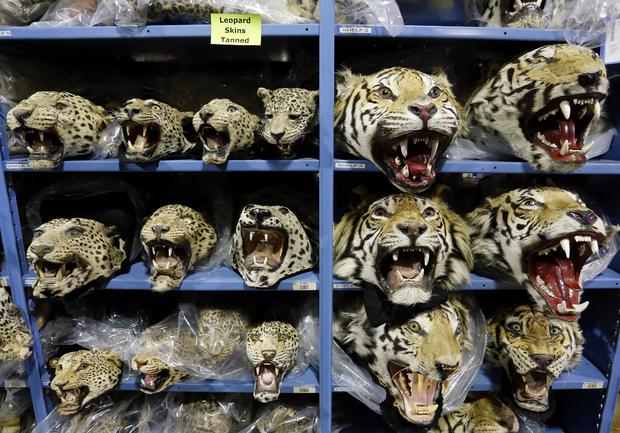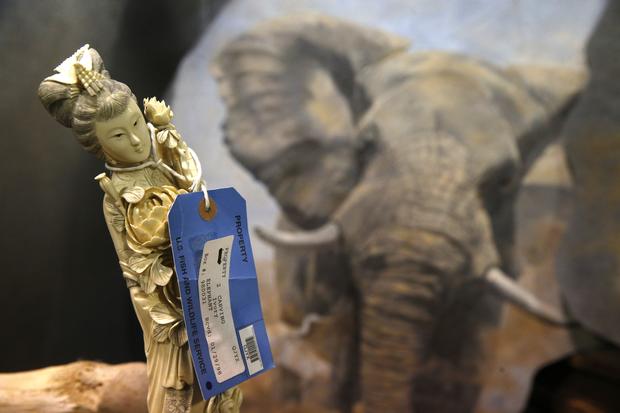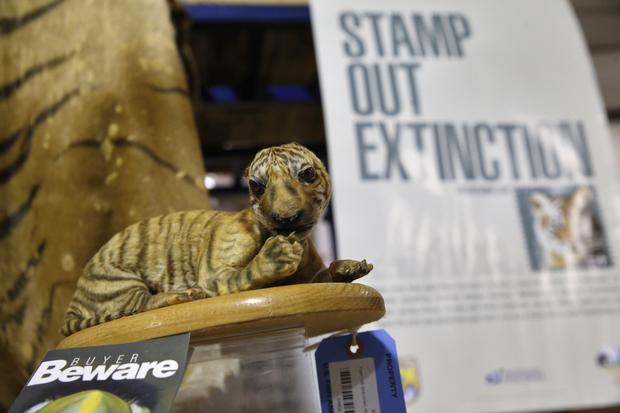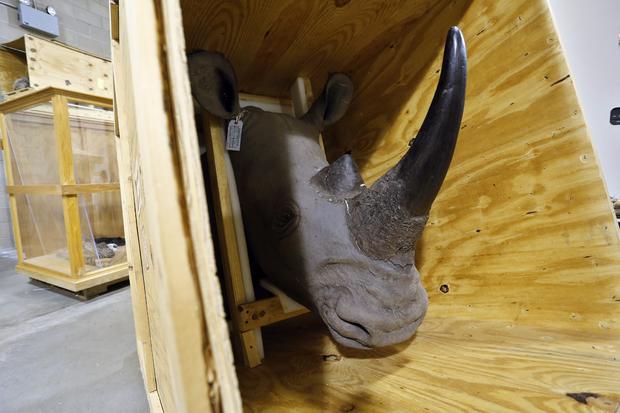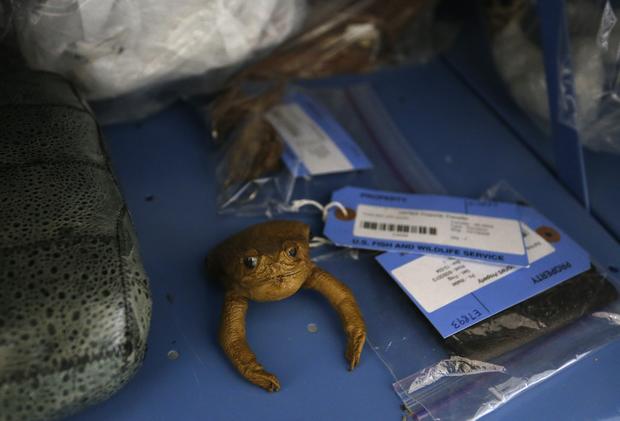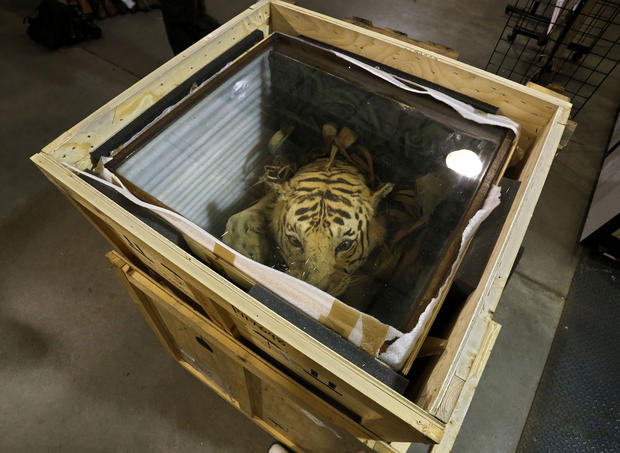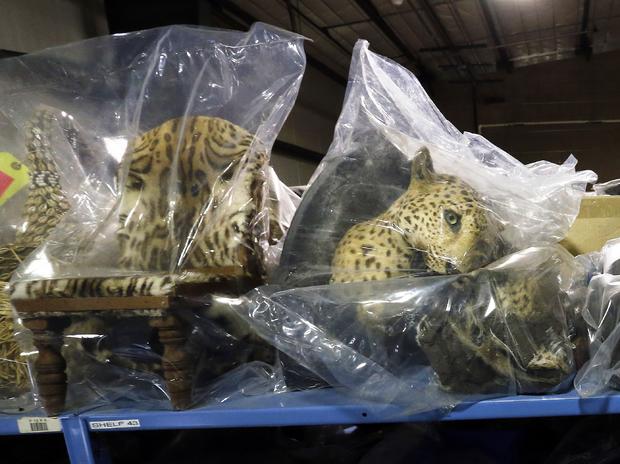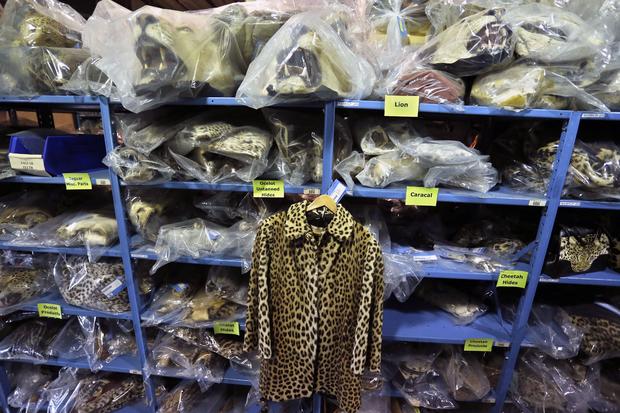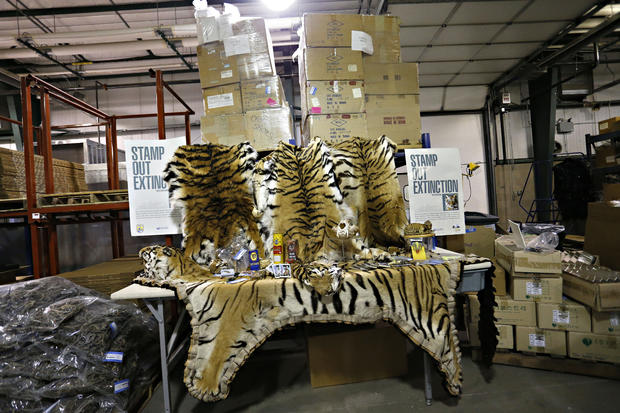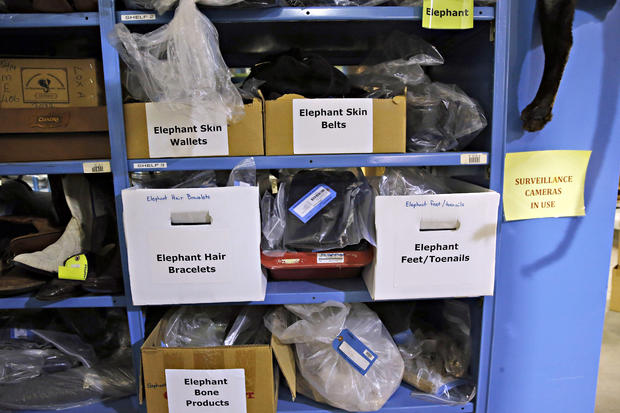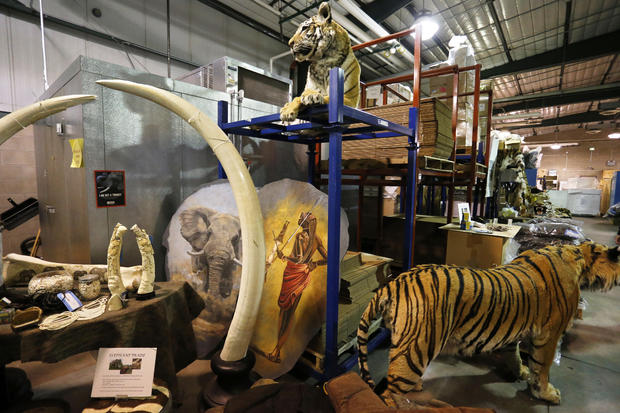Endangered species warehouse
Shelves and shelves of elephant tusks, leopard heads, crocodile skin purses and tiger skins - more than 1.5 million items in all - warehoused at the National Wildlife Repository near Denver are a stark illustration of the multibillion dollar threat of global trafficking to endangered animals.
The only such repository in the U.S. houses a massive collection of seized wildlife items, from law enforcement agencies around the country. According to Coleen Schaefer, who supervises the repository, operated by U.S. Fish and Wildlife Service's Office of Law Enforcement, the black market in wildlife is the fourth most profitable in the world, after illegal trafficking in weapons, drugs and humans."
In this Oct. 20, 2015 photo, illegally trafficked leopard and tiger heads fill the shelves of a warehouse inside the National Wildlife Property Repository in Commerce City, Colorado.
Global trafficking in endangered animals
A seized ivory carving is tagged inside a warehouse at the U.S. Fish and Wildlife Service's National Wildlife Property Repository, October 20, 2015.
More than 100,000 elephants were killed from 2010 to 2012 - almost 96 each day - to supply the appetite of China's growing middle class and markets elsewhere in Asia for all things ivory. Despite some progress in anti-poaching efforts and increasing awareness of governments the elephant population is still struggling.
Global trafficking in endangered animals
A seized stuffed tiger at the National Wildlife Property Repository.
The repository has a loan program for schools, museums and nonprofits that have a conservation message. It also send items to research institutions.
Global trafficking in endangered animals
A seized stuffed tiger embryo is stored at Wildlife Service's National Wildlife Property Repository.
There are an estimated 3,200 tigers left in the wild.
Global trafficking in endangered animals
An illegally-trafficked stuffed rhino is among the more than one million seized items stored at the National Wildlife Property Repository.
Experts warn that wild rhinos will be extinct by 2020. According to Will Travers, chief executive of the Born Free Foundation, there are approximately 27,950 left now. That figure represents a major loss considering the estimated 500,000 that existed in the early 20th century.
Global trafficking in endangered animals
An illegally trafficked stuffed endangered frog is stored on a shelf at the National Wildlife Property Repository.
According to the U.S. Fish & Wildlife Service, wildlife trafficking, including poaching, illegal trade in wildlife and their related parts and products, has escalated into an international crisis in the past decade. Run by international networks the black market trade is seen to threaten conservation efforts and global security.
Global trafficking in endangered animals
Supervising wildlife repository specialist Coleen Schaefer holds a seized ivory carving which smugglers tried to conceal inside pottery.
"Our main purpose is to provide conservation education about the legal and illegal wildlife trade," Schaffer said.
China is the world's biggest market for illegal ivory. Though it announced a one-year ban on ivory imports in early 2015, it's unclear how effective that will be.
Global trafficking in endangered animals
A box containing a seized stuffed tiger head is yet to be unpacked at the repository.
The contents of the warehouse reflect the full array of the multibillion-dollar rare wildlife products trade.
Global trafficking in endangered animals
Wildlife repository specialist Doni Sprague inventories items near shelves stuffed with illegally trafficked animal parts and products.
Global trafficking in endangered animals
An illegally trafficked leopard head and leopard-skinned chair are stored in bags on a shelf.
Global trafficking in endangered animals
Illegally trafficked animal products are displayed at the National Wildlife Property Repository.
Global trafficking in endangered animals
A leopard skin jacket hangs on shelves packed with illegally trafficked lion heads and other animal parts stored inside the National Wildlife Property Repository.
The U.S. Fish and Wildlife Service's Office of Law Enforcement investigates wildlife crimes and regulates wildlife trade.
Global trafficking in endangered animals
An array of illegally trafficked animal products.
Global trafficking in endangered animals
Illegally trafficked animals parts are stored on shelves.
Global trafficking in endangered animals
Illegally trafficked elephant ivory and a stuffed tiger are among the more than one million seized in the U.S. and stored at the repository.
More photos: Endangered species
© 2015 CBS Interactive Inc. All Rights Reserved. This material may not be published, broadcast, rewritten, or redistributed. The Associated Press contributed to this report.
